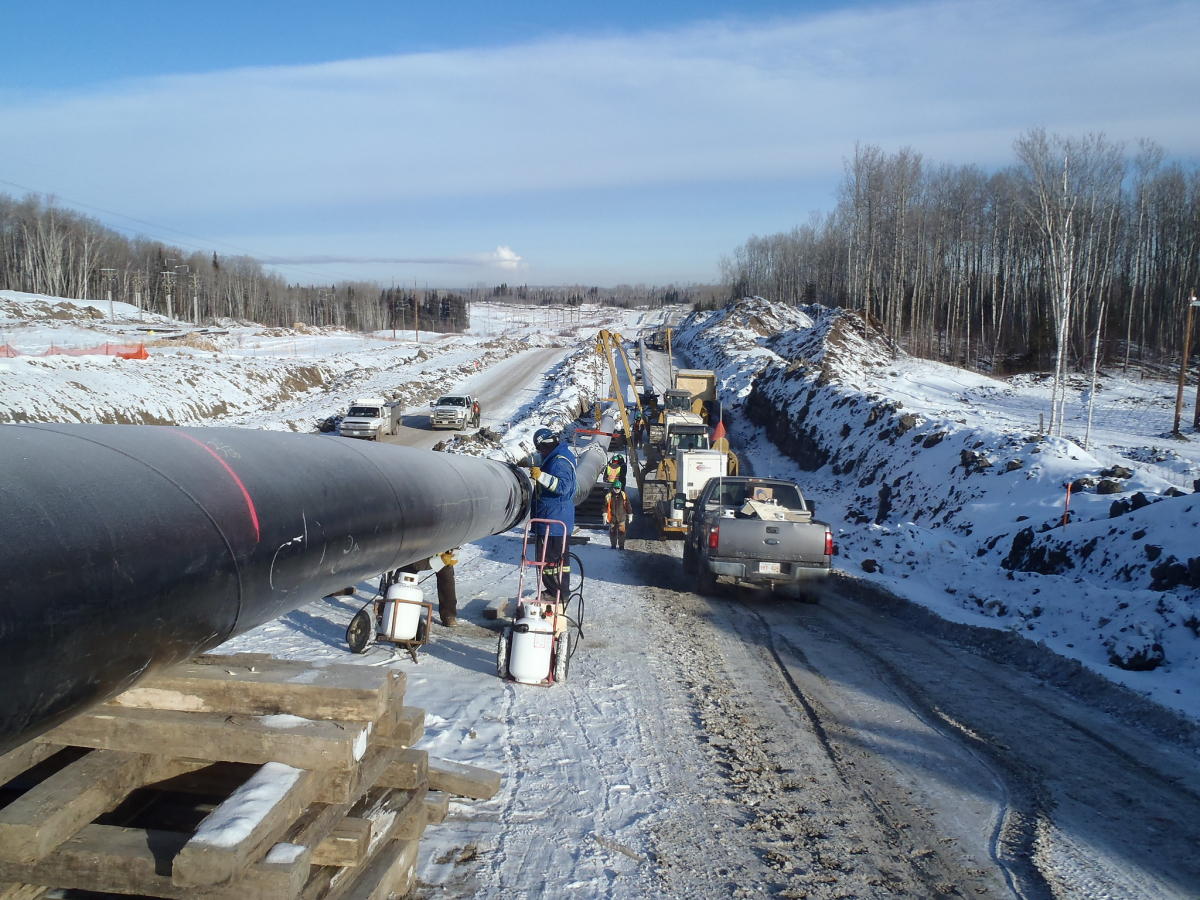Challenge to federal law that poses ‘existential threat’ to Alberta goes to Supreme Court

The Supreme Court of Canada this week will examine whether the federal law that evaluates the impacts of proposed resource projects is unconstitutional.
The Impact Assessment Act (IAA) looks into the environmental, health and economic impacts of proposed resource projects — like pipelines and mines — and came into force in 2019 when the federal government passed Bill C-69.
Soon after, the Alberta government brought a legal challenge against the law and its regulations, arguing it was federal overreach encroaching on provincial jurisdiction. The Alberta Court of Appeal ruled in favour of the provincial government in May 2022, calling the IAA an "existential threat" to the provincial right to control and develop resources.
This week, the federal government is appealing the provincial court’s decision before the Supreme Court of Canada. All the provinces except Nova Scotia and Prince Edward Island are intervening in the case against the federal government. The Supreme Court heard arguments in support of the IAA on Tuesday, and opponents will voice their objections on Wednesday.
Albertan politicians have long attacked the IAA for being anti-development, dubbing it the “no more pipelines” law. Countless federal MPs have decried the act and accused it of impeding resource development, including Conservative Party of Canada Leader Pierre Poilievre, who pledged to repeal it if he becomes prime minister.
On the other hand, environmental and climate groups emphasize the importance of the act to ensure a review process for projects like pipelines that protects air, water, land and communities across the country.
The law provides clear criteria to determine if a project is in the public interest by looking at things like impacts on sustainability, Indigenous rights and Canada’s ability to meet its climate commitments, an Ecojustice press release said, explaining the law charity’s rationale for intervening in the Supreme Court case.
It also provides greater transparency and ensures decision-making is not done behind closed doors, Ecojustice says.
“Decisions under the IAA might be politically unpalatable to a province or make it a bit more complicated for a proponent to do as they wish with public lands and resources,” said Ecojustice lawyer Joshua Ginsberg in an emailed statement. “That does not make the IAA unconstitutional; it shows that it serves a purpose — environmental protection — which Canadians have the right to expect from every level of government.”
Natasha Bulowski / Local Journalism Initiative / Canada’s National Observer






Comments
The SCC took a purely myopic view on its decision in support of TMX. It was a federal project that had the right to cross provincial boundaries, therefore it was exclusively in federal jurisdiction. No province can change that fact.
It then stands to reason that environmental impacts that extend beyond provincial boundaries become a federal issue subject to federal laws. Ditto human rights and the Charter.
Does the Athabasca River not flow to the Arctic after passing through communities that use it for drinking water? Does Alberta's airshed not extend beyond political boundaries?
If a giant dome was placed over Alberta at its boundaries that contained and concentrated all its pollution, you can bet that politicians there would act much differently.
If, for some strange reason, the SCC decides in favour of Alberta, then the feds have every right to reconsider funding TMX and subsidies for the O&G industry there.
Alberta wants the feds out of its existence. Of course, that sentiment is selective. So, why shouldn't the feds become just as selective with its support for the very unappreciative industry and its sycophants in governent that are causing all this fuss?
Well, and of course if the Albertans are calling it the "no more pipelines" law . . . so, when was the last time a pipeline was built whose boundaries stayed entirely within a single province? Oh, it does happen . . . not in Alberta, though. They should be careful what they ask for--if they had successfully gotten the federal government entirely out of the pipeline-regulating business years ago, there would be no Trans-Mountain pipeline because BC would have been able to simply say no. Alberta had no power to ram that through, it was the feds who overruled BC.
Precisely.
Technically, it was the SCC under federal law that saw "jurisdiction" as the only issue, and it duly ignored First Nation's rights and BC's ownership of inland seas and the related seafloor and coastlines. Crossing the border trumped all other concerns.